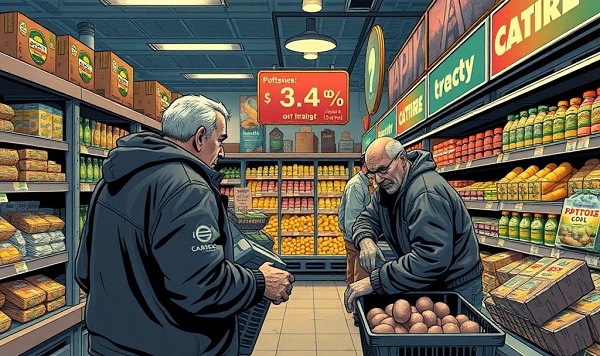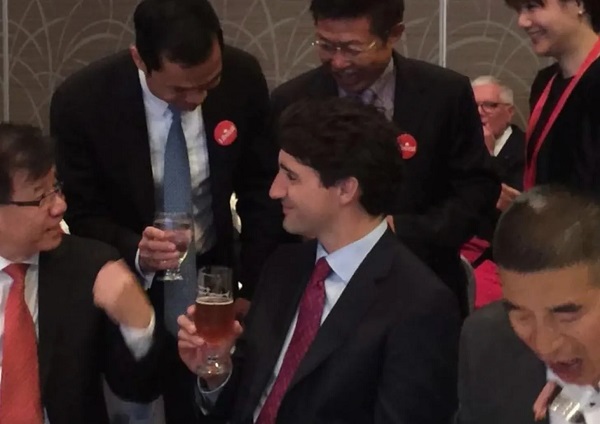National
This Changes Nothing – Conservative Leader Pierre Poilievre
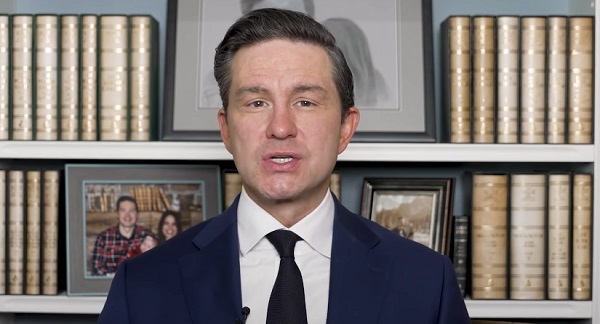
From Conservative Party Communications
The Hon. Pierre Poilievre, Leader of the Conservative Party of Canada and the Official Opposition, released the following statement on Justin Trudeau resigning as the Liberal Leader:
“Canadians desperate to turn the page on this dark chapter in our history might be relieved today that Justin Trudeau is finally leaving.
“But what has really changed?
“Every Liberal MP in power today and every potential Liberal leadership contender fighting for the top job helped Justin Trudeau break the country over the last 9 years. All Liberal politicians actively worked to pass into law the job-killing, inflationary carbon tax—a tax that Carbon Tax Carney endorsed in his book. All supported a law quadrupling the tax over the next 5 years. All voted for or actively supported Trudeau’s out-of-control spending, debt and immigration. All passed Trudeau’s housing policies that doubled the cost of homes. All Liberal politicians helped pass catch-and-release bail and house arrest for the most rampant reoffenders, policies that increased violent crime 50%, gun crime 116% and hate crime by 250%.
“So, given that Liberal MPs and leadership contenders unanimously supported everything Trudeau has done, why dump him now, right before an election?
“Have they had a change of heart?
“Is it because they feel guilty that they doubled housing costs, hiked taxes, unleashed crime, broke immigration, forced a quarter of the population into poverty? No. They continued supporting Trudeau when he did all those things.
“No. Their only objection is that he is no longer popular enough to win an election and keep them in power. They want to protect their pensions and paycheques by sweeping their hated leader under the rug months before an election to trick you, and then do it all over again.
“Now, while leaderless Liberals focus on saving their jobs and fighting each other for power—the country spirals out of control—an out-of-control housing emergency, an out-of-control migrant crisis, an out-of-control $62 billion deficit, not to mention tariff threats from the United States, oh, and another NDP-Liberal carbon tax hike kicks in this April 1st … everything is out of control… and now, the government is out-of-control.
“The Liberals know how wrong this all is, that’s exactly why they shut down Parliament and paralyze government, all to save their own skins.
“This cannot go on. We need a carbon tax election now, to choose between:
- The NDP-Liberal costly coalition that taxes your food, punishes your work, doubles your housing costs and unleashes crime and drugs in your community.
OR
- Common Sense Conservatives who will axe the tax, build the homes, fix the budget and stop the crime.
“Canadians can take back control of their lives and their country. Take back control of our border, take back control of immigration, take back control of spending, deficits and inflation. Take back control of our streets by locking up criminals, banning drugs, treating addiction and stopping gun smugglers. We’ll cap spending, axe taxes, reward work, build homes, uphold family, stop crime, secure borders, rearm our forces, restore our freedom and put Canada First.
“All with one mission: to bring home Canada’s promise that every hardworking Canadian gets a powerful paycheque and pension that buys affordable food and homes on safe streets; where all are united for the country we know and love: Canada first, Canada last, Canada always.
“Let’s bring it home.”
Business
Trudeau reversed Chrétien’s legacy and rapidly expanded federal bureaucracy
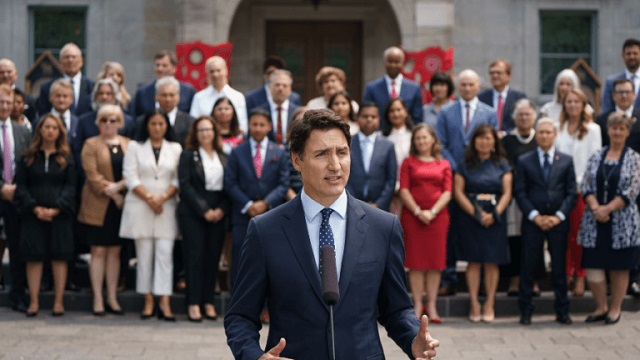
From the Fraser Institute
Over the next weeks and months, there will be much discussion about Justin Trudeau’s legacy as prime minister. To provide some context, it’s worth comparing Trudeau’s fiscal record with that of another long-serving Liberal prime minister—Jean Chrétien.
In the early 1990s Canada’s federal finances were in shambles. Thanks to years of large budget deficits (and high interest rates), debt interest payments were consuming one-third of all federal revenue and the country stood at the brink of a full-blown fiscal crisis. Paul Martin, Chrétien’s finance minister, recognized the gravity of the threat and famously promised to eliminate the deficit “come hell or high water.” And that’s exactly what the Chrétien government did, thanks primarily to reductions in federal spending.
How’d they do it?
The government launched a program review, which examined all dimensions of spending in search of savings. The review led to a substantial reduction in federal government employment, which shrunk by nearly 15 per cent. While there were many components to the federal reforms of the 1990s, this reduction in the size of the federal bureaucracy clearly helped Chrétien and Martin eliminate the federal deficit.
Fast-forward to the present day and Justin Trudeau, who does not share his Liberal predecessors’ commitment to balanced budgets. Federal government employment has increased rapidly in recent years, with the Trudeau government adding more bureaucrats (in absolute and percentage terms) than were reduced during the Chrétien/Martin reform era.
Specifically, from 2015/16 to 2022/23, federal government employment (as measured in fulltime equivalents) increased by 26.1 per cent. By comparison, the Canadian population increased by 9.1 per cent over the same period.
Just as the reduction in federal employment contributed to the deficit reduction in the 1990s, the growth in federal employment has helped fuel the Trudeau government’s unending string of budget deficits since 2015/16. Incidentally, if during its nine years in power the Trudeau government had simply held the rate of growth in federal employment to the rate of population growth, federal spending would be $7.5 billion lower than it is today.
According to the Trudeau government’s latest projections, the federal deficit will reach an eye-popping $48.3 billion this fiscal year. And thanks to years of record-high spending under Trudeau, total federal debt will eclipse $2.15 trillion. Consequently, the federal government will spend $53.7 billion this year on debt interest payments—or $1,301 per Canadian.
Canadian history is clear—it’s difficult to predict the policy orientation of any premier or prime minister based on their political stripe. Prime Ministers Chrétien and Trudeau prove this point. Chrétien reduced federal employment with an eye on eliminating the federal deficit. Trudeau reversed this legacy by rapidly growing the federal bureaucracy. This is one important reason for the divergent fiscal outcomes between the two governments.
Under Prime Minister Chrétien, Canadians saw a string of balanced budgets. Under Prime Minister Trudeau, an unending series of deficits and massive debt accumulation, which Canadians must pay for today and for many years to come.
Business
Government has inherent bias for more government
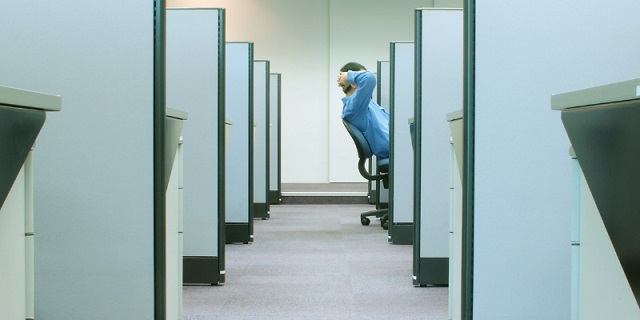
From the Fraser Institute
By Jason Clemens and Jake Fuss
One of the authors of this op-ed resides in a municipality, which recently launched an online survey to gauge the preferences of residents with respect to its upcoming budget, which is laudable, but the questions illustrate a problem within government: a bias for more government.
The City of Coquitlam in British Columbia asked respondents whether it should increase, decrease or simply maintain the same level of spending in 2025 for policing, recreation, water and sewage, infrastructure and others items. The problem: there wasn’t a single question on whether residents prefer tax reductions.
Moreover, there was no discussion or context about how increased spending for these activities must come from taxpayers in the form of either having more taxpayers (city population increases) and/or higher tax rates for those residing in the city. What’s clear from the survey is that the municipal government prefers to spend more.
And this bias towards more government within government is not restricted to this local municipality. Other municipalities, provincial governments and certainly the Trudeau federal government have favoured more spending.
Under Prime Minister Trudeau federal spending has reached never-before-seen levels, even after adjusting for inflation. Consider, for instance, that per-person federal spending (excluding interest costs) will reach $11,901 this fiscal year (inflation-adjusted), well above previous levels of per-person spending including during the 2008-09 financial crisis and both world wars. The rationale is that Ottawa is delivering services demanded by Canadians.
But is that true? Are Canadians demanding national pharmacare, national dental benefits and a national daycare program? The answer depends on whether the costs of those programs are included in the discussion.
A 2022 poll asked Canadians about their support for all three programs. Support ranged from 69 per cent for national daycare, to 72 per cent for dental care, to 79 per cent for pharmacare. Here’s the problem, though. The questions were asked without respondents considering any costs. In other words, the respondents were asked whether they support these programs assuming they don’t affect their taxes.
But of course, taxpayers must pay for government spending, and when those costs are included, Canadians are much less supportive. In the same poll, when increased spending is linked with an increase in the GST, support plummets to 36 per cent for daycare, 40 per cent for pharmacare and 42 per cent for dental care.
And these results are not unique. A 2020 poll by the Angus Reid Institute found 86 per cent support for a national prescription drug program—but that support drops by almost half (47 per cent) if a one-percentage point increase in the middle-class personal income tax rate is included.
One explanation for the dramatic change in support rests in another poll, which found that 74 per cent of respondents felt the average Canadian family was overtaxed.
So it’s convenient for governments to avoid connecting more spending with higher taxes.
This internal government support for more government also shows up in our tax mix. Canadian governments rely on less visible taxes than our counterparts in the OECD, a group of high-income, developed countries. For instance, Canadian governments collect 6.8 per cent of the economy (GDP) in consumption taxes such as the GST, which are quite visible and transparent because the cost shows up directly on your bill. That ranks Canada 31st of 38 OECD countries and well below the OECD average of 10.0 per cent.
Alternatively, we rely on personal income tax revenues to a much greater degree and, because these taxes are automatically deducted from the paycheques of Canadians, they are much less apparent to workers. Canada collects 12.3 per cent of the economy in personal income taxes, ranking us 6th highest for our reliance on personal income taxes and above the OECD average of 8.3 per cent.
And a complying media aids the push for more government spending. According to a recent study, when reporting on the announcement of three new federal programs (pharmacare, dental care and national daycare) the CBC and CTV only included the cost of these programs in 4 per cent of their television news coverage. Most of the coverage related to the nature of the new programs, their potential impact on Canadians, and the responses from the Conservative, NDP and Bloc Quebecois. Simply put, the main television coverage didn’t query the government on the cost of these new programs and how taxpayers would pay the bill, leaving many viewers with the mistaken impression that the programs are costless.
Indeed, it’s interesting to note that the same study found that 99.4 per cent of press releases issued by the federal government related to these three programs excluded any information on their costs or impact on the budget.
The inherent bias within government for more government is increasingly clear, and supported by a lack of skepticism in the media. Canadians need clearer information from government on the potential benefits and costs of new or expanded spending, and the media must do a better job of critically covering government initiatives. Only then can we realistically understand what Canadians actually demand from government.
-

 Business2 days ago
Business2 days agoTrump Needs To Take Away What Politicians Love Most — Pork
-

 Brownstone Institute1 day ago
Brownstone Institute1 day agoThe Trump Administration Must Bring Moderna to Heel
-
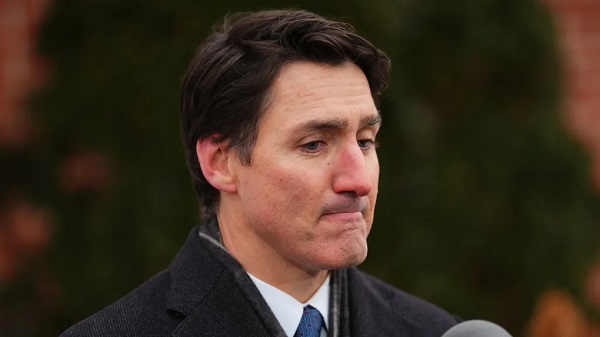
 National2 days ago
National2 days agoAfter a decade spinning in a maelstrom, we’re headed straight into a hurricane.
-
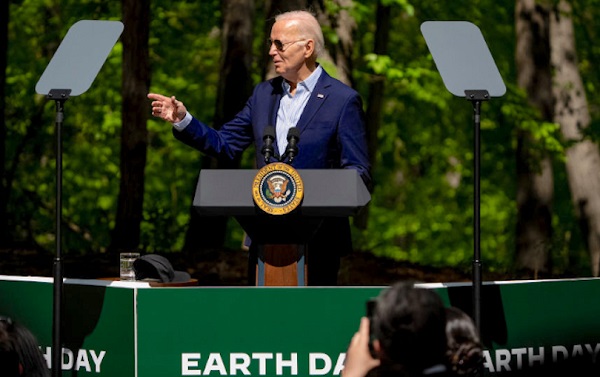
 Daily Caller2 days ago
Daily Caller2 days agoTrump Calls Biden’s Drilling Ban ‘Worst Abuse Of Power I’ve Ever Seen’
-

 COVID-191 day ago
COVID-191 day agoCalls for COVID-19 vaccine recall – FDA’s own study finds DNA contamination in Pfizer vaccines
-

 National23 hours ago
National23 hours agoFormer Saskatchewan Premier Brad Wall on working with (or against) Justin Trudeau
-

 Daily Caller2 days ago
Daily Caller2 days agoMusk Completely Derails UK Political Establishment, Accuses PM’s Party Of Covering Up Muslim Rape Gangs
-

 Censorship Industrial Complex1 day ago
Censorship Industrial Complex1 day agoAboutFacebook: Zuckerberg zaps fact checkers in favour free speech







